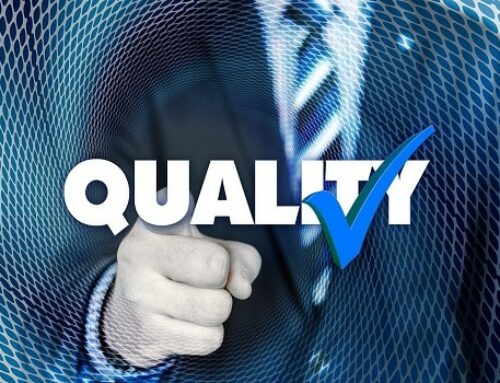How can your company ensure perfect compliance while optimizing its quality processes? The answer lies in adopting a high-performance document management system.
A modern document management software transforms this constraint into a competitive advantage. It centralizes your procedures, automates version control, and facilitates compliance with standards such as ISO 9001. This digitalization revolutionizes industrial quality management.

Key takeaways regarding document management systems:
- Document centralization: A single repository for all your quality documents
- Automated compliance: Guaranteed adherence to ISO 9001 and other standards
- Complete traceability: Modification history and secure access control
- Operational efficiency: Reduced document search time
- Continuous improvement: Performance indicators and facilitated quality audits
Need to optimize your quality document management?
Our Picomto experts support you in deploying a solution tailored to your compliance challenges.
1. What is a quality document management system?
Digitalization requires a complete overhaul of traditional approaches. Nevertheless, companies must understand the fundamentals before undertaking this transformation. Thus, let’s explore the essential aspects of a modern system.
1.1. Definition and fundamental principles
A quality document management software centralizes all critical documents. It ensures:
- Automatic and intelligent version control
- Secure and accessible document centralization
- Automation of approval processes
- Granular access rights management
Moreover, these systems comply with ISO 9001 by guaranteeing traceability. Indeed, each modification is timestamped and attributed to a specific user.
1.2. Specific challenges in industry
Modern industry faces complex documentation challenges. First, compliance with standards requires exemplary rigor. Then, the proliferation of formats complicates management.
- Compliance with strict sectoral regulations
- Management of critical quality documents
- Mandatory document traceability
- Interoperability of existing systems
However, these challenges become opportunities with the right technological solutions.
1.3. Evolution towards modern digital solutions
Today, EDM (Electronic Document Management) for quality revolutionizes practices. Indeed, companies are progressively abandoning paper. Similarly, remote access becomes indispensable.
These modern solutions include:
- Native digital format
- Secure electronic archiving
- Real-time document collaboration
- Integration with management systems
2. What are the advantages of a quality document management system?
The benefits of a document system go far beyond simple dematerialization. Indeed, organizations observe profound transformations of their processes. Let’s therefore analyze the concrete and measurable advantages.
2.1. Simplified compliance and traceability
Regulatory compliance becomes automatic with an adapted system. Consequently, quality teams gain peace of mind. Moreover, continuous improvement relies on reliable data.
Key advantages:
- Automated compliance with ISO 9001 requirements
- Detailed and accessible modification history
- Quality audits facilitated by traceability
- Systematized nonconformity management
Furthermore, the Quality Management System (QMS) is enriched with exploitable data.
2.2. Error reduction and productivity gains
Automation eliminates frequent human errors. Thus, operational efficiency progresses significantly. Similarly, processing times decrease drastically.
- Automatic procedure standardization
- Real-time document updates
- Elimination of obsolete versions
- Scheduled periodic reviews
Moreover, performance objectives become more easily attainable.
2.3. Optimized collaboration and sharing
Secure access to documents transforms collaborative work. Indeed, dispersed teams work efficiently together. Additionally, access control guarantees security.
- Instant and secure sharing
- Intelligently organized filing plan
- Automatic modification notifications
- User training integrated into the system
3. Document management system: What essential features to look for?
Choosing a document system requires in-depth analysis of functionalities. Certain characteristics prove essential to guarantee success. What features are essential in quality EDM software? Let’s therefore examine the fundamental technical criteria.

3.1. Document creation and revision
Document lifecycle management constitutes the system’s core. Consequently, creation functionalities must be intuitive. Moreover, revision must respect business processes.
Essential functionalities:
- Integrated editor with quality templates
- Automated document tracking
- Intelligent and secure versioning
- Integrated continuous quality assessment
Indeed, these tools facilitate the development of a quality culture within the organization.
3.2. Approval workflows
Workflow automation guarantees process consistency. Thus, each document follows a predefined approval circuit. Similarly, deadlines are automatically respected.
- Configurable approval circuits
- Automated notifications
- Escalation in case of delay
- Secure sensitive data management
3.3. Multiplatform accessibility
Universal access to documents becomes imperative. Consequently, mobility and compatibility are essential. Moreover, remote access must remain secure.
- Responsive web interface
- Native mobile applications
- Secure cloud synchronization
- Integration of existing tools
3.4. Analytics and reporting
The document repository must generate exploitable insights. Indeed, dashboards feed strategic decision-making.
- Customizable performance indicators
- Automated compliance reports
- Detailed usage analytics
- Export to existing BI tools
Discover how our digital checklists optimize your quality processes !
4. Document management system: How to choose the right solution for your company?
Selecting a document system requires a methodical approach. However, each organization possesses unique specificities. Consequently, the evaluation must be personalized and rigorous.
4.1. Assessment of specific needs
Preliminary analysis conditions project success. First, identify your specific regulatory constraints. Then, evaluate current and future document volume.
Essential questions:
- Which standards to comply with (ISO 9001, GxP, etc.)?
- What document volume to process?
- How many simultaneous users?
- Which system integrations necessary?
Moreover, the single document for risk assessment must guide your technological choices.
4.2. Key selection criteria
Objective comparison requires precise criteria. Furthermore, system scalability guarantees investment sustainability. Thus, prioritize modular and open solutions.
Priority criteria:
- Compliance with your sector’s standards
- Ease of use and adoption
- Data security and backup
- Technical support and training
Additionally, assess the supplier’s capacity to support your transformation.
5. Picomto, document management solution for quality management
Picomto revolutionizes industrial document management through an innovative approach. Indeed, our platform combines ease of use and functional power. Consequently, organizations rapidly transform their quality processes.
5.1. Overview of key features
Picomto natively integrates all essential functionalities. Thus, companies have a complete and consistent ecosystem. Moreover, the intuitive interface accelerates user adoption.
Flagship features:
- Interactive and multimedia work instructions
- Intelligent task planning
- Real-time remote assistance
- Mixed reality augmented reality for guidance
Similarly, our center-lining approach guarantees operational excellence.
5.2. Advantages for industry
Industry benefits from concrete and measurable advantages. Indeed, our clients observe immediate gains. Furthermore, scalability accompanies organizational growth.
Industrial benefits:
- Drastic reduction of quality errors
- Accelerated training cycles
- Preventive maintenance optimization
- Continuous production improvement
Additionally, data management becomes a strategic asset.
5.3. Use cases and customer testimonials
Our clients testify to remarkable transformations. For example, SKF revolutionized its maintenance processes. Similarly, Veolia optimizes its large-scale operations.
Application sectors:
- Pharmaceutical: Curium example
- Agri-food: Agromousquetaires case
- Defense: French Navy feedback
- Chemical: Butachimie testimonial
Conclusion
A modern document management system radically transforms industrial quality management. Indeed, organizations that invest in these solutions gain competitiveness. Consequently, adoption becomes strategic for the future.
Essential points to remember regarding quality document management systems:
- Automated compliance secures your processes
- Operational efficiency progresses significantly
- Collaboration becomes enriched and streamlined
- Technological innovation opens new horizons
Thus, Picomto supports this transformation with a complete and scalable solution. Moreover, our sectoral expertise guarantees successful deployment.
FAQ
What is a quality document management system?
A digital solution centralizing, securing, and automating the management of industrial quality documents.
What are quality management tools?
EDM, approval workflows, version control, automated reporting, and dashboards.
What are the 4 stages of EDM?
Capture, indexing, secure storage, controlled distribution, and regulatory archiving of documents.
What are the 7 quality tools?
Pareto diagram, cause-and-effect diagram, histogram, control charts, scatter diagram, brainstorming, check sheets.
What are the different types of EDM?
Collaborative EDM, business-specific, archiving, digitization, and hybrid systems according to needs.
What is the best EDM?
A solution adapted to specific needs: sector, size, regulatory constraints, and available budget.
What is the main objective of EDM?
To optimize efficiency, security, compliance, and traceability of organizational document management.






Leave A Comment